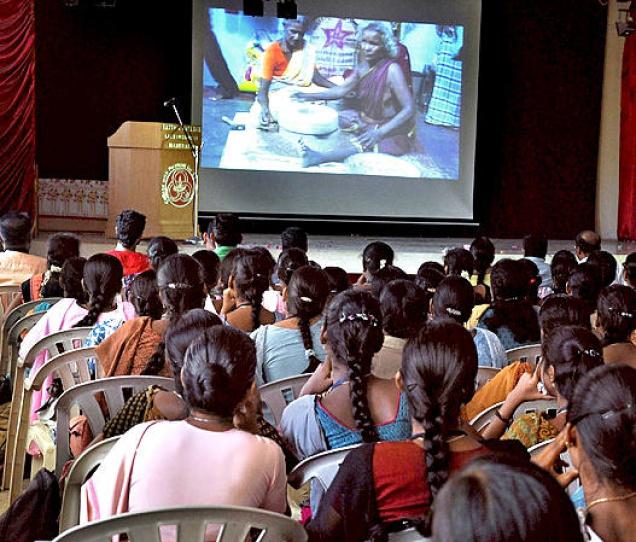
The Chinese discovered a 4,000-year-old bowl of well preserved noodles made from foxtail millet and broomcorn millet at the Lajia archaeological site in 2002. Though such a discovery is yet to be made in India, it is no doubt true that the nutritious millet was once upon a time a staple diet of Indians too, says a group of students from Fatima College here.
A documentary film produced by first year postgraduate students of the English Department claims that millet lost their prime position in Indian kitchens due to excessive importance given to rice and wheat during the Green Revolution in 1960s.
The film, titled ‘Back to tradition — reviving legacy of small millet,’ was released by principal Rev. Sr. A. Jospin Nirmala Mary here on Tuesday.
Produced in association with the Centre for Development Communication of the DHAN Foundation, a non-governmental organisation here, the 12-minute documentary film highlighted how millet was superior to rice in terms of its nutritive values. Almost all millet varieties had much higher content of protein, magnesium and calcium than rice, it averred.
The students had visited rural pockets like Sengapadai, close to Thirumangalam near here, and interacted with the locals who cultivated and consumed millet as a preferred diet. They had documented rural women ruing about their urban counterparts relying excessively on electrical mixer grinders because they lacked the stamina to work on manual pounders.
“Women these days are weak because their diet does not contain nutritious millet preparations like Kammangkoozh and Kelviragu kanji,” says Ravimani, a farmer woman of Sengapadai.
Similar opinions were expressed by other villagers who cited consumption of millet to be the reason for rural people to possess the energy required for physical labour.
The students ended the documentary with a stress on the need to give back the prime place that millets once enjoyed in Indian kitchens. They also recalled with gratitude the support they received from M. Rosary Royar, Head of the Research Department of English; P. Krishnamurthi, team leader of CDC, DHAN Foundation and filmmaker T. Veerabathiran in producing the film.
source: http://www.thehindu.com / The Hindu / Home> Cities> Madurai / by Mohamed Imranullah S. / April 17th, 2013